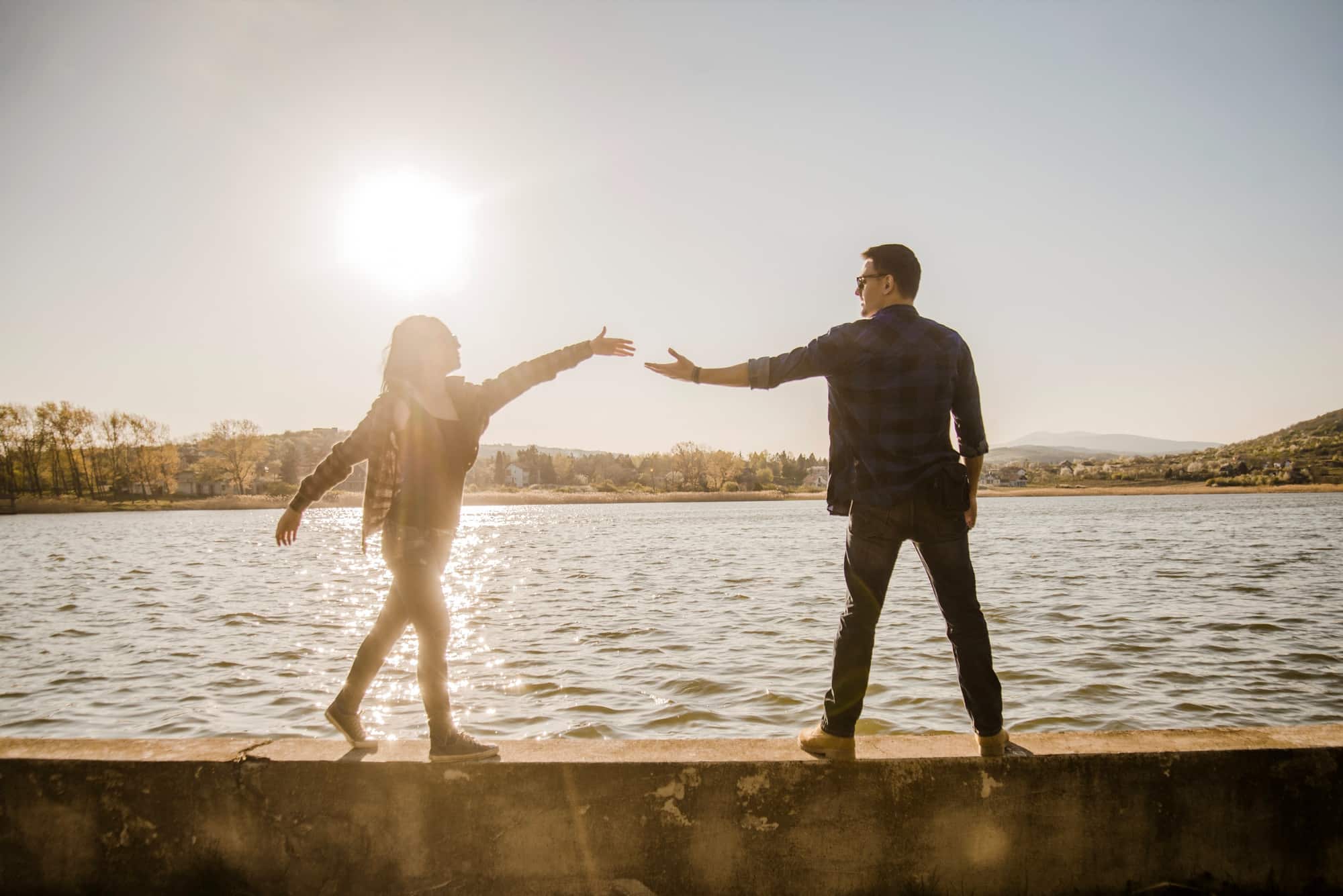Why Your Lifestyle Matters: The Ripple Effect on Your Relationships
1. Introduction
Have you ever sat back and thought about how your lifestyle impacts those around you? It’s an interesting concept—our daily choices, from what we eat to how we spend our free time, can create waves that ripple throughout our relationships. In this article, we’ll explore this ripple effect and uncover why your lifestyle truly matters in shaping your connections with others.
2. What is Lifestyle?
Definition and Components
Lifestyle refers to the way we live our lives, encompassing our behaviors, habits, and choices that reflect our values and preferences. It includes everything from our diet, physical activity, work-life balance, and even how we interact with technology. It’s the sum picture of who we are.
The Influence of Daily Choices
Every choice we make adds a layer to our lifestyle, impacting not just ourselves but also those in our immediate circles. Think about it: when you choose to adopt a healthier diet or invest time in a new hobby, you’re not just enhancing your own life; you’re also altering how you engage with friends, family, and coworkers.
3. The Connection Between Lifestyle and Relationships
How Lifestyle Shapes Interactions
Your lifestyle is a canvas on which your relationships are painted. If you’re living a healthy and active lifestyle, for instance, you’re likely to seek out friends who share similar values. This can lead to more fulfilling connections as you bond over common activities such as hiking, yoga, or cooking nutritious meals.
The Influence of Shared Activities
Shared experiences can strengthen bonds. When you engage in activities together, whether it’s a workout class or a community project, you’re creating shared memories that can deepen relationships and increase the overall happiness for everyone involved.
4. Physical Health and Relationships
The Impact of Diet and Exercise
Eating well and staying active does wonders not just for physical health but for our relationships too. Have you ever felt how much easier it is to socialize when you feel good? When you prioritize your health, you’re likely to have more energy and enthusiasm for engaging with others.
Healthy Bodies, Healthy Connections
When you prioritize your well-being, it promotes a positive atmosphere and influences those around you. Healthy habits can be contagious—when one person in a social group starts making active choices, others often follow suit, fostering a healthier community.
5. Mental Well-being and Relationship Dynamics
Stress, Anxiety, and Their Ripple Effects
Our mental health is intricately connected to our lifestyle choices. High levels of stress or anxiety can strain relationships, making it hard to connect. When you’re managing your mental well-being—taking time for self-care, practicing mindfulness, or seeking professional help—you create a more stable and supportive environment for your relationships to thrive.
Mindfulness and Emotional Intelligence
Practicing mindfulness not only helps in managing stress but also improves emotional intelligence. By cultivating awareness and empathy, you become more attuned to the feelings of others, enhancing your relationship dynamics tremendously.
6. Social Connections and Lifestyle Choices
Social Circles and Their Effects
The people you spend time with greatly influence your lifestyle. Are your friends encouraging you to make positive changes or dragging you down with unhealthy habits? Your social circle can either empower or inhibit your growth, impacting the quality of your relationships in the long run.
The Role of Community Engagement
Engaging with your community can enrich your life. Joining community events not only broadens your social network but also connects you with like-minded individuals, supporting a lifestyle that promotes positive relationships.
7. The Role of Hobbies and Interests
Shared Interests: A Bonding Tool
Having common interests can significantly enhance relationships. Whether it’s sports, arts, cooking, or gardening, engaging in hobbies together fosters a sense of closeness and shared purpose, creating a powerful bond that can withstand the tests of time.
How Hobbies Can Strengthen Relationships
Investing time in shared hobbies is like watering a plant—it requires attention and care, but when nurtured right, it blossoms beautifully, bringing joy and connectivity into your life.
8. Lifestyle Choices and Work-Life Balance
Balancing Professional and Personal Life
In our hustle culture, it’s easy to overlook the importance of balance. If work overshadows personal time, relationships suffer. Establishing boundaries and prioritizing downtime is crucial not only for self-care but also for nurturing relationships.
The Impact of Stress on Relationships
Job-related stress can bleed into personal life, causing tension in relationships. When work-life balance is skewed, the ripples can create waves that upset harmony and connection with loved ones.
9. The Family Dynamics
Parenting Styles and Lifestyle Choices
Our lifestyles extend to our families, influencing how we parent and interact. Parenting styles can shift based on lifestyle choices, dictating values and the overall family environment.
The Role of Family Activities
Engaging in family activities—game nights, outdoor sports, family cook-offs—can strengthen family dynamics and build lasting traditions that enhance the family bond.
10. Technology and Relationships
Digital Lifestyle and Its Impact
In today’s tech-savvy world, understanding your technology usage is key. Are you spending more time scrolling through social media than connecting with friends and family? Finding that balance between digital interaction and face-to-face connection is vital.
The Balance Between Online and Offline Interactions
Excessive time spent online can lead to a disconnect in real-life relationships. Focus on establishing boundaries around technology to foster deeper connections with those physically around you.
11. Financial Lifestyle Considerations
Money Habits and Relationship Strain
How we manage money can create tension or harmony in relationships. Being transparent about finances can enhance trust and understanding; be it as significant as budgeting or as simple as discussing financial goals.
Transparency in Financial Decisions
Establishing shared financial goals and making collective decisions fosters unity, while hiding financial issues can create rifts, significantly affecting the relationship dynamic.
12. Lifestyle Transition and Relationship Changes
How Changes in Lifestyle Affect Relationships
Life is unpredictable, and lifestyle changes—from moving to a new city to changing jobs—can lead to relationship changes. Navigating these transitions requires open communication and support.
Navigating Relationship Dynamics Through Change
Change can be challenging, but it also presents opportunities for growth. Supportive conversations during transitions can reinforce bonds and lead to stronger, more resilient relationships.
13. Building a Supportive Lifestyle
Strategies for a Healthy Lifestyle
Creating a healthy lifestyle involves intentional decisions. Set achievable goals, prioritize self-care, and don’t hesitate to seek professional advice—building a supportive network can work wonders on your lifestyle and relationships.
Creating a Supportive Environment
Surrounding yourself with positive influences—from friends to mentors—can help sustain your lifestyle choices, ensuring you not only grow individually but also maintain strong bonds with others.
14. Measuring Lifestyle Impact on Relationships
Self-Reflection and Evaluation
Taking time for self-reflection can help you gauge your true impact on relationships. Are your lifestyle choices fostering connection or causing distance? Taking a step back can give you the insight needed to adjust accordingly.
Seeking Feedback from Loved Ones
Consider asking loved ones how they perceive your lifestyle choices’ impact on your relationship. Honest conversations can provide clarity and allow you to make necessary adjustments to deepen those connections.
15. Conclusion
Your lifestyle isn’t just about you; it’s a tapestry that intricately weaves through your relationships. By being mindful of your choices, prioritizing health and well-being, and engaging with the right people, you can experience a profound ripple effect in your personal interactions. Embrace the power your lifestyle has, and watch as it transforms your relationships for the better.
FAQs
What are the key components of a healthy lifestyle? A healthy lifestyle includes balanced nutrition, regular physical activity, adequate sleep, and mental well-being. It’s a holistic approach to well-being that emphasizes the interconnectedness of body and mind.
How can I improve my relationships through lifestyle changes? Start by prioritizing self-care, pursuing shared activities, and being mindful of how your choices affect others. Open communication about your lifestyle goals can also enhance understanding and support within relationships.
What role does mental health play in relationships? Mental health is crucial to maintaining healthy relationships. It affects how we communicate, handle stress, and connect emotionally with others, making it essential to prioritize mental wellness in any relationship.
Can lifestyle choices affect my family dynamics? Absolutely! Your lifestyle influences parenting styles, family interactions, and shared activities, ultimately shaping the family atmosphere and the relationships within it.
How do I balance my lifestyle with technology use? Set specific limits on your screen time, prioritize face-to-face interactions, and consider establishing tech-free zones or times in your home, encouraging deeper connections with family and friends
A Century of Health: How the World Has Changed from 1924 to 2024
25 Common Manipulation Techniques in Psychology: A Comprehensive Guide






Pingback: Understanding Student Life Through the Lens of Psychology - luxelifer.com
Pingback: The Brain-Body Connection: Enhancing Mental Health Through Lifestyle - luxelifer.com